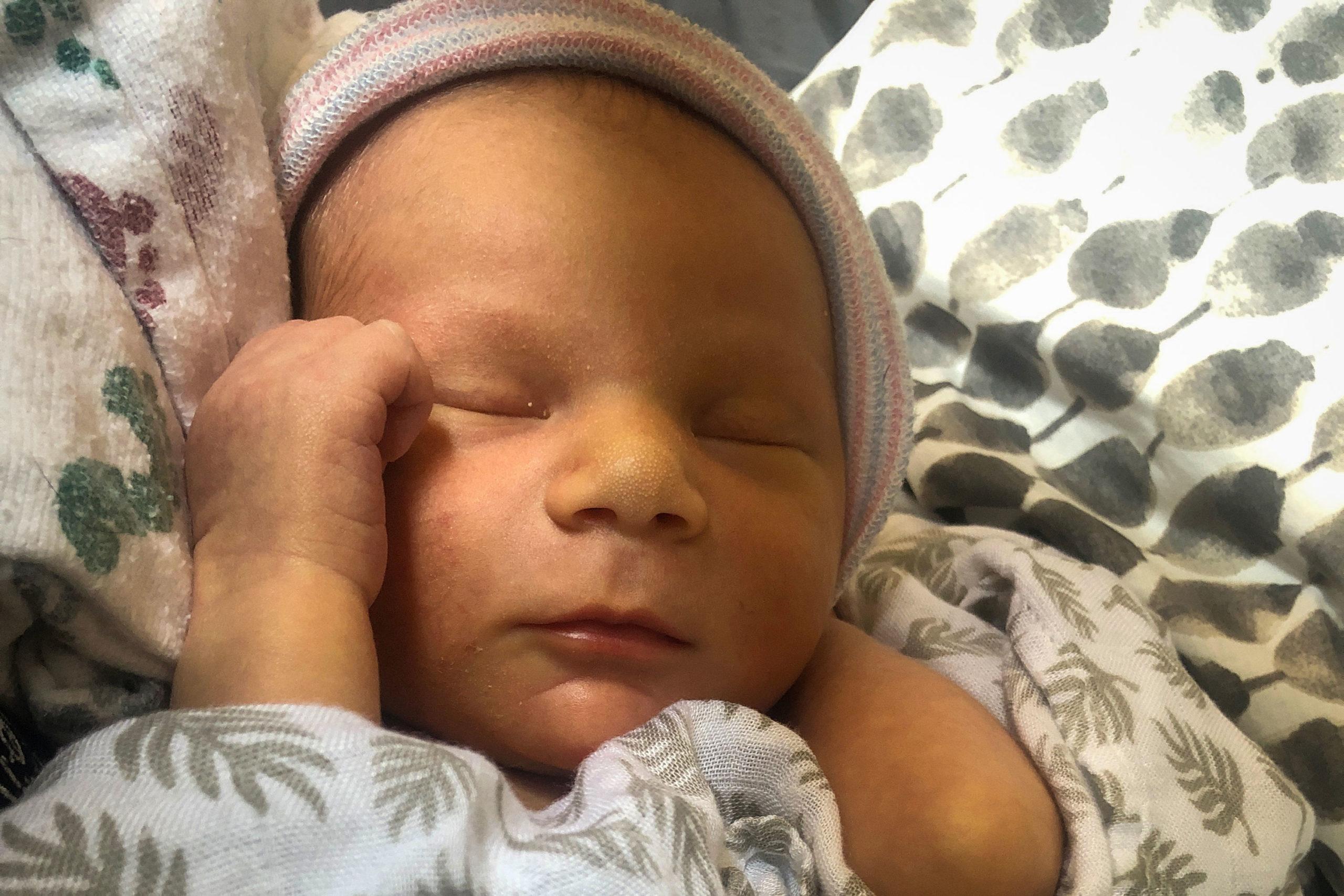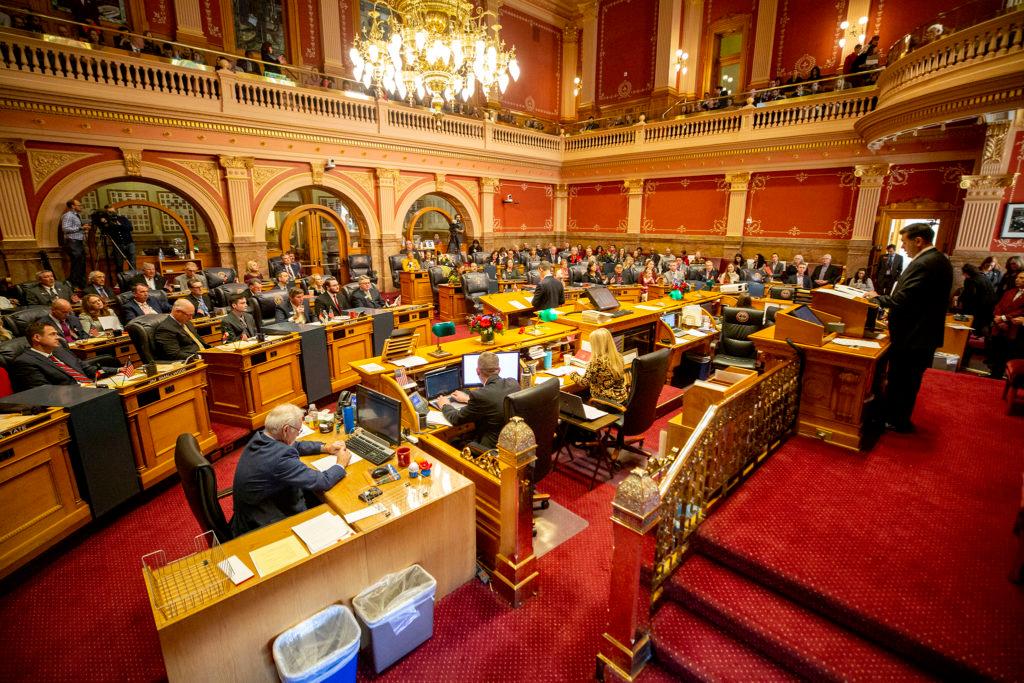
When Democratic Sen. Brittany Pettersen of Lakewood gave birth to a baby boy last weekend, she entered a territory state law isn’t designed to handle. Colorado has no clear provisions in place for a lawmaker who wants to take parental leave during the session.
It’s prompting a closer look at the rules for working parents at the state capitol.
“I think we’ve made some progress but I was pretty surprised to find out that we have no maternity policy,” Pettersen told Colorado Public Radio just days before giving birth.
State law says a long-term illness is the only reason for a lawmaker to miss more than 40 days of the 120-day session. For other extended absences, a lawmaker’s pay would be docked, unless the Senate President agreed to excuse them.
Pettersen plans to take about a month off from work, so she’s guaranteed her full salary, but she thinks the law should be updated to ensure three months of paid leave for new parents.
“Now it doesn't mean that you have to be gone for that, but it gives you that time if needed,” she said. “You never know what circumstances people find themselves in.”
Any change to the law would need to pass both legislative chambers and get the governor’s signature.
“Several of my colleagues are looking to be proactive so that we can address that in the future,” said Democratic Senate President Leroy Garcia. “And there's definitely a willingness and an interest to see this happen.”
Yet some are skeptical about allowing any legislator to collect a full salary for a three-month absence since it’s a part-time legislature that only meets from January to May and the key thing lawmakers do, vote, can only happen in person.
While Pettersen’s situation is highly unusual, plenty of lawmakers have young children and babies. Republican Rep. Kevin Van Winkle’s son Jack was born during the 2019 session; he took two days off from work. And the week before the 2020 session began, Democratic Senate Majority Leader Steve Fenberg’s daughter arrived.
“Historically a lot of times legislators were retirees after their career. Times have changed and we need to evolve to accommodate that,” Fenberg said. “There probably are some tweaks that we need to make to some rules, but I think overall, it's probably more of a cultural evolution than a black and white rule or statute evolution.”

In 2019, a number of changes were implemented to make the building more family-friendly. A lactation room for new mothers was set up. On Take Your Child to Work Day, Gov. Jared Polis hosted a party in his office with balloons and games; more than half of his senior staff have young children. The Legislature also passed a new law that allows candidates running for office to use campaign contributions to help defray the costs of child care.
“Being a parent shouldn't impede you from doing this job,” said bill sponsor Democratic Rep. Kyle Mullica of Thornton. When he was first sworn into office in 2019 his youngest daughter was only two days old. “We want those perspectives represented in this building. And so we need to make sure that we are setting this building up to be able to allow those perspectives to be represented.”
Yet it can be a gray area as to when it’s appropriate for lawmakers to bring their children onto the House or Senate floor. While children are always welcome, Garcia said, parent-lawmakers should use their own judgment.
“There are times that the gravity of the item that we are taking up, such as memorials of former senators or when we have state patrol who are shot and killed in the line of duty, and the body has to be a little more somber,” he said.
For example, in the last session, two senators had their toddlers with them during time set aside to remember the Holocaust. The children walked in front of the Senate president’s podium and could be heard in the background when the minority leader was speaking. Non-partisan Senate sergeants asked that the children quiet down and they eventually left the chamber. There’s a disagreement over whether lawmakers were told to remove them.
Republican Sen. Kevin Priola, one of the parents, said he was disappointed at how everything unfolded and wasn’t aware the Holocaust resolution was going to be discussed that day. He said he grew up in a family business and likes having children around.
“I think having kids down here humanizes us in what we do and helps put the perspective on why we should make good decisions for the future,” he said. “And I think it brings down the animus and rancor and the stress.”
Democratic Sen. Jessie Danielson’s then one-year-old was also there because she didn’t have child care that day. She’s interested in seeing the Senate rules changed to make it explicitly clear that children can be there.
“There are times that we work that are far outside the hours of my daycare center,” she said. “I’m sure that lots of families can identify with that. There are times when you don’t have child care.”









